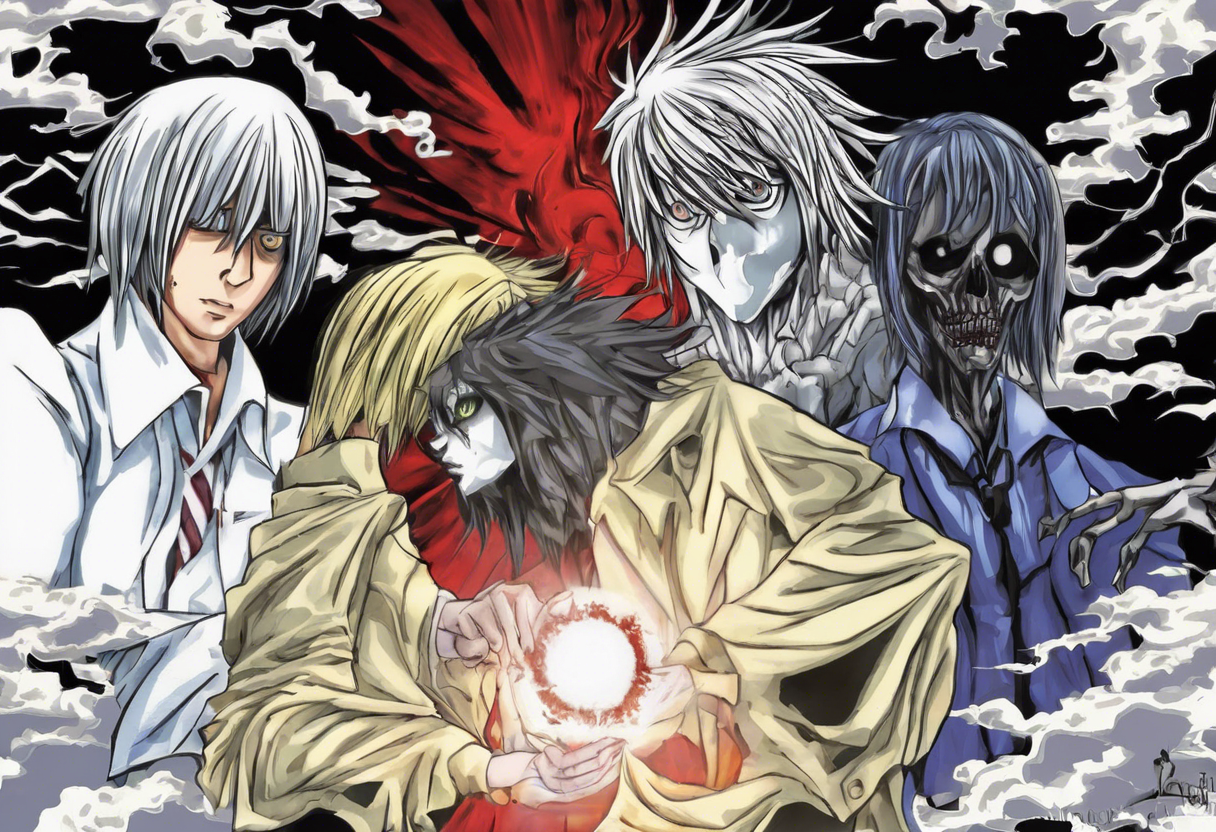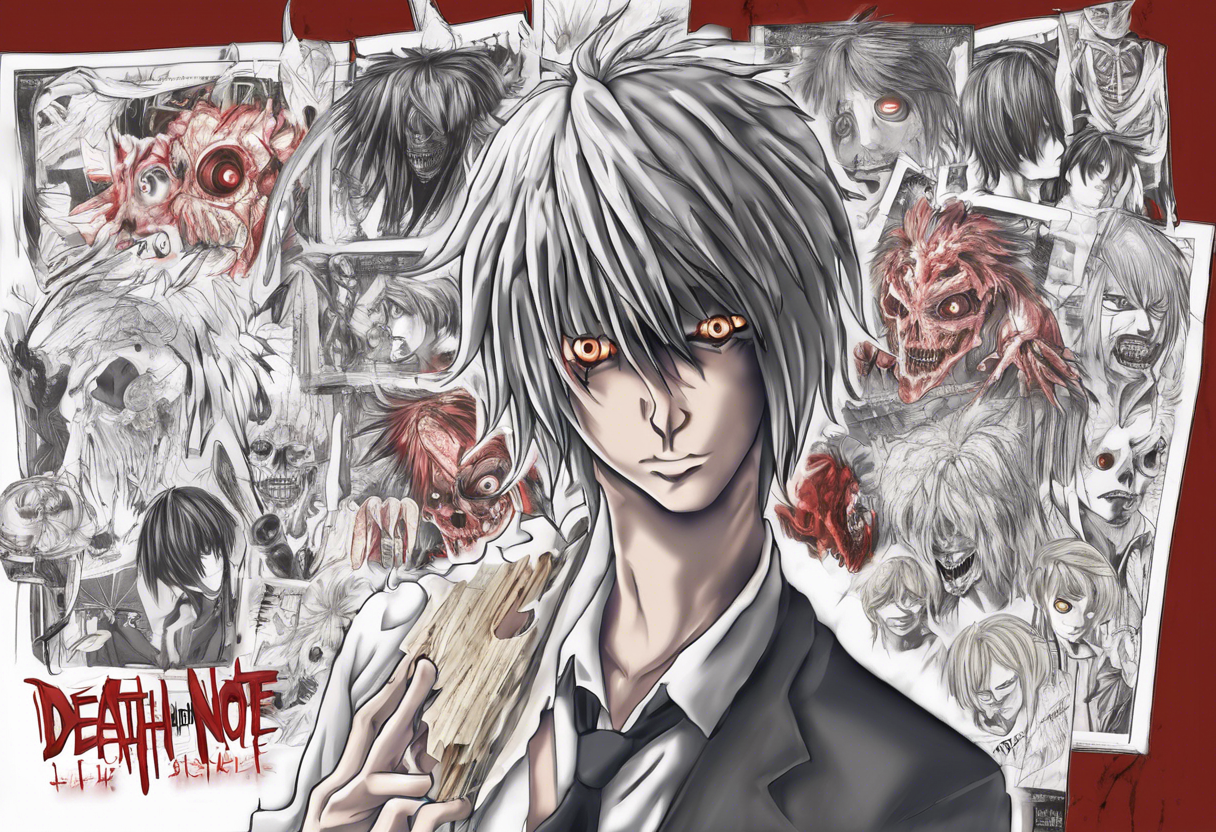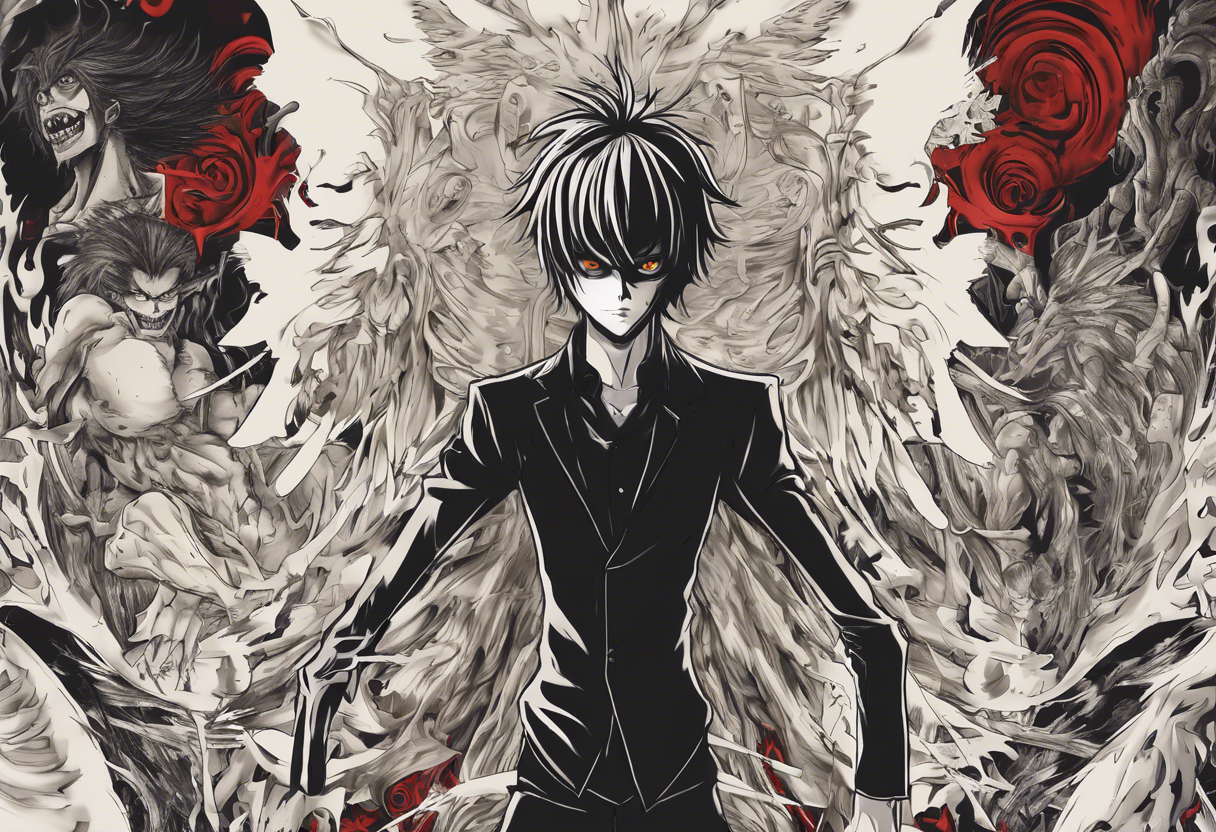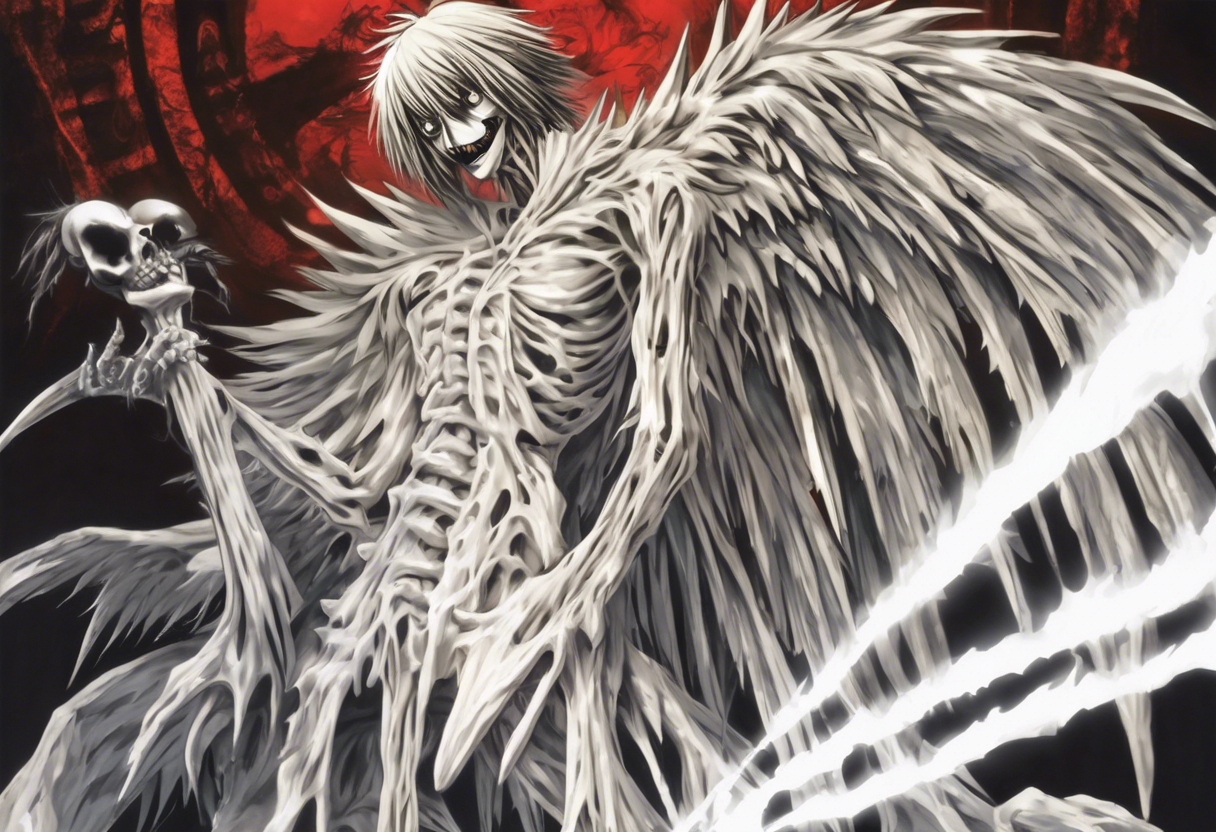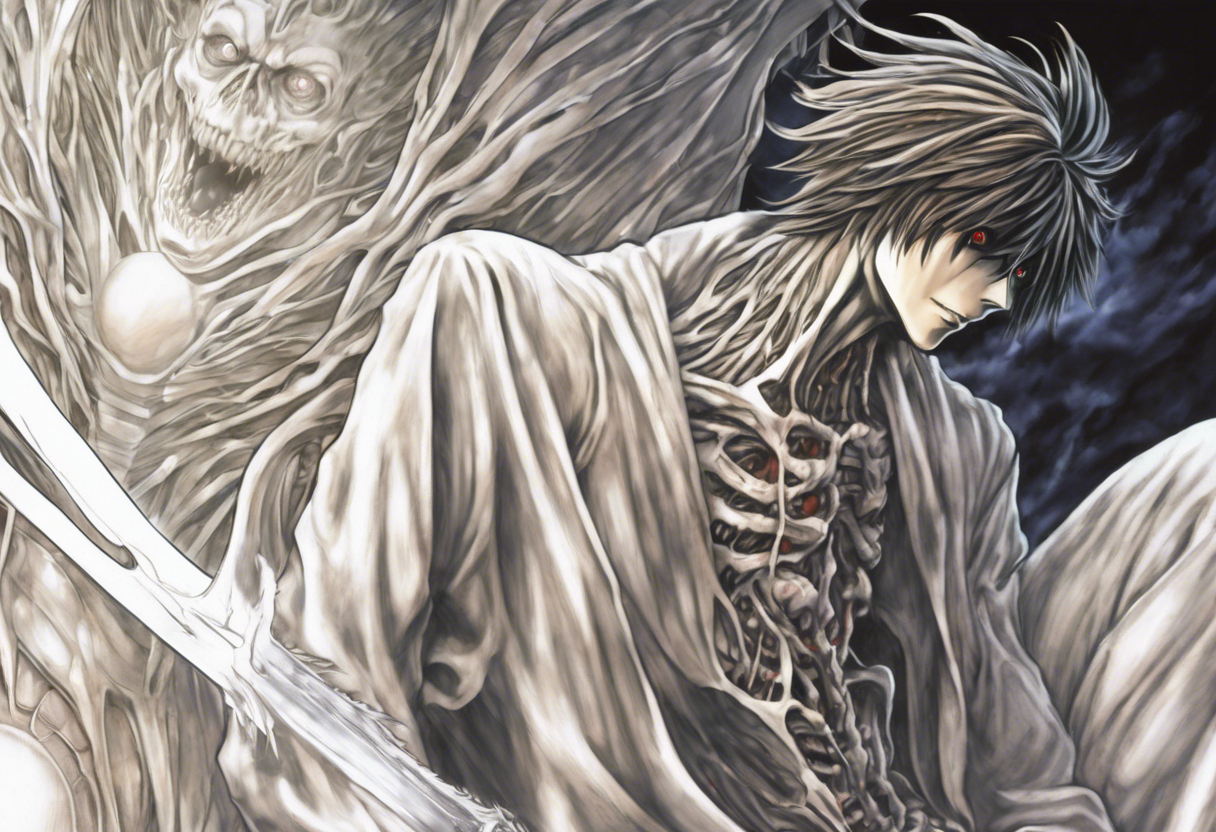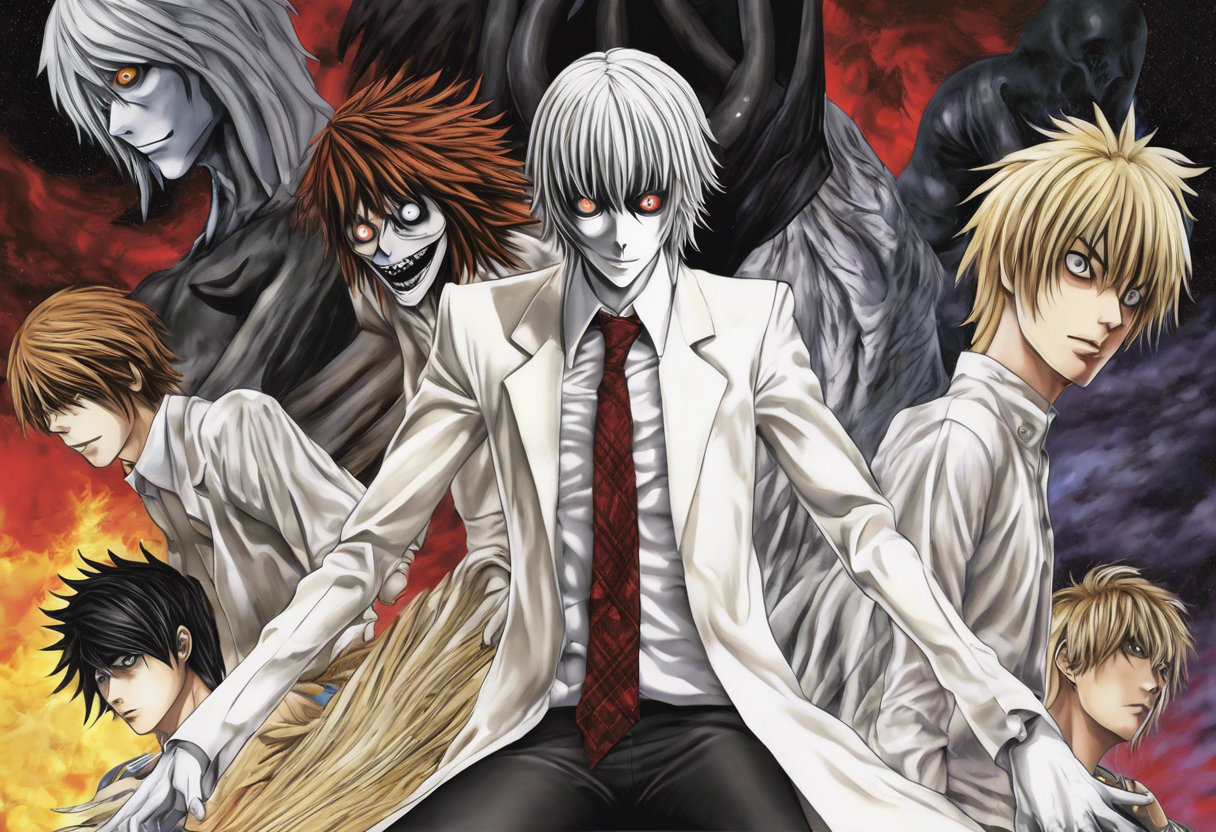Contents
Introduction
Death Note: Relight – Visions of a God, originally titled Death Note Rewrite: Genshisuru Kami, is a Japanese anime television film released in 2007. This movie is a condensed retelling of the first half of the popular anime series Death Note, which is based on the manga of the same name written by Tsugumi Ohba and illustrated by Takeshi Obata.
The film was produced by Madhouse, the same studio behind the original Death Note anime series, and directed by Tetsurō Araki, who also directed the original series. The screenplay was adapted from the manga and the anime, with a focus on presenting the story through the perspective of Ryuk, the shinigami who dropped the Death Note into the human world.
Death Note: Relight – Visions of a God was released in Japan in 2007 and has since been distributed in various countries, including North America, where it was licensed by Viz Media [2][5].
What sets this film apart is its unique approach to retelling the story. Unlike the original series, which spans 37 episodes, Death Note: Relight – Visions of a God compresses the narrative into a single film, making it more accessible to new viewers while still maintaining the core elements that made the original series compelling.
Plot Summary
The plot of Death Note: Relight – Visions of a God follows the main storyline of the original Death Note series but with some alterations to fit the condensed format. The story centers around Light Yagami, a genius high school student who discovers the Death Note, a supernatural notebook that allows its user to kill anyone whose name is written in it, provided the user knows the person’s face.
Light, driven by a desire to create a crime-free world, begins using the Death Note to kill high-profile criminals, earning him the alias "Kira" (the Japanese transliteration of "killer"). His actions attract the attention of the enigmatic detective L, who is determined to uncover Kira’s identity.
The film delves into the cat-and-mouse game between Light and L, showcasing their intellectual battles and the strategies each employs to outmaneuver the other. Key characters such as Ryuk, the shinigami who dropped the Death Note, and Misa Amane, a popular idol who becomes involved with Light, are also featured prominently.
The narrative is structured to highlight the pivotal moments of the original series, including Light’s initial use of the Death Note, his confrontation with L, and the subsequent events that lead to L’s death. The film’s ending is tailored to provide a sense of closure and originality, differentiating it from the original series [1][3][5].
Themes and Symbolism
Death Note: Relight – Visions of a God explores several central themes that are integral to the Death Note series. One of the most significant themes is the morality of justice and the consequences of playing god. Light Yagami’s actions raise questions about whether it is justifiable to kill in the name of creating a better world, and the film delves into the psychological and ethical implications of such actions.
Another theme is the battle of wits and the intellectual struggle between Light and L. This dynamic highlights the complexities of human intelligence and the limits of human knowledge. The film also touches on the theme of isolation and loneliness, particularly through the characters of Light and L, who are both geniuses but live in solitude due to their extraordinary abilities [2][4][5].
Symbolically, the Death Note itself represents the ultimate power and the dangers of unchecked authority. Ryuk, the shinigami, symbolizes boredom and the search for entertainment, which serves as a commentary on the human condition and the need for stimulation. The apples that Ryuk constantly eats symbolize his addiction to the human world and his fascination with human behavior [2][4].
Cultural Impact
Death Note: Relight – Visions of a God has had a significant cultural impact, both in Japan and internationally. The film, along with the original series, has contributed to the global popularity of the Death Note franchise. The franchise has inspired numerous adaptations, including live-action films, a television drama, and even a musical [2].
The film’s release was met with positive reception, particularly among fans of the original series who appreciated the condensed and reimagined narrative. It has also been praised for its ability to attract new viewers who may not have had the time to watch the entire series.
In terms of influence, Death Note: Relight – Visions of a God has been referenced in various forms of media, including other anime series and films. The film’s themes and characters have become part of pop culture, with Kira and L becoming iconic figures in the world of anime and manga.
Critical Reception
Death Note: Relight – Visions of a God received generally positive reviews from critics and audiences. Critics praised the film for its tight writing, well-animated sequences, and the effective condensation of the original series’ narrative into a single film. The film’s ability to balance action, suspense, and intellectual battles was particularly highlighted [5].
However, some critics noted that the film might not be as engaging for viewers who are unfamiliar with the original series, as it assumes a certain level of prior knowledge. Despite this, the film has been well-received by fans and has maintained a high rating on platforms like IMDB, with a score of 7.4/10 [1].
Legacy
Death Note: Relight – Visions of a God continues to be relevant in the world of anime and manga, serving as a testament to the enduring appeal of the Death Note franchise. The film’s unique approach to storytelling and its ability to condense complex narratives into a compelling single film have inspired other creators.
The Death Note franchise as a whole has left a lasting impact on the anime and manga industry, influencing numerous other series and films. The characters and themes introduced in Death Note: Relight – Visions of a God remain iconic and continue to be referenced and adapted in various forms of media.
In conclusion, Death Note: Relight – Visions of a God is a significant work within the Death Note franchise, offering a fresh perspective on the original story while maintaining its core themes and characters. Its cultural impact, critical reception, and enduring legacy make it a must-watch for fans of anime and manga.

